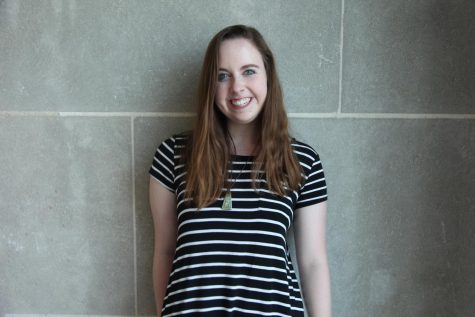Find balance in your diet, vegan or not
April 24, 2019
We’ve all gone out to eat with “those” people: the ones who anxiously ask the waiter to list out every ingredient in their Mediterranean salad and then complain when the dressing contains feta. Living a life completely devoid of animal products (think meat, cheese, and yes even ice cream) is certainly not for everyone. But for many, being vegan is a no-brainer.
According to Health Line, vegans tend to eat more whole grains, fruits, vegetables, beans and nuts, which means they end up getting more fiber and other key vitamins and minerals compared to someone with a conventional American diet. A recent study from the American Diabetes Association also suggests being vegan can improve kidney function and prevent cancer and heart disease.
From an environmental standpoint, vegans also play a huge role in curbing the production of greenhouse gases. A study from the University of Oxford showed that being vegan could cut an individual’s carbon footprint by up to 73 percent. Eating at a lower trophic level also uses less land and resources, which makes sense when you consider how much energy it takes to grow the grass and animal feed that cattle consume.
Overall, it makes sense that many people are tossing that carton of milk in the fridge and embracing the multitude of alternatives from the grocery store. While I sympathize with vegans, my own diet falls right in the middle.
Over the past couple of years I’ve tried to cut down on dairy because of how it impacts my skin, but I can’t imagine ever cutting out Saturday night hot fudge sundaes and gooey mac and cheese cold turkey.
I’m a firm believer in finding balance in every aspect of your life, especially diet. If every American made an effort to cut out meat and dairy a measly one day of the week, it could dramatically impact the environment and their health in the long run. But at the end of the day, cashew cheese really can’t compare to the real deal, so do what you need to do.







